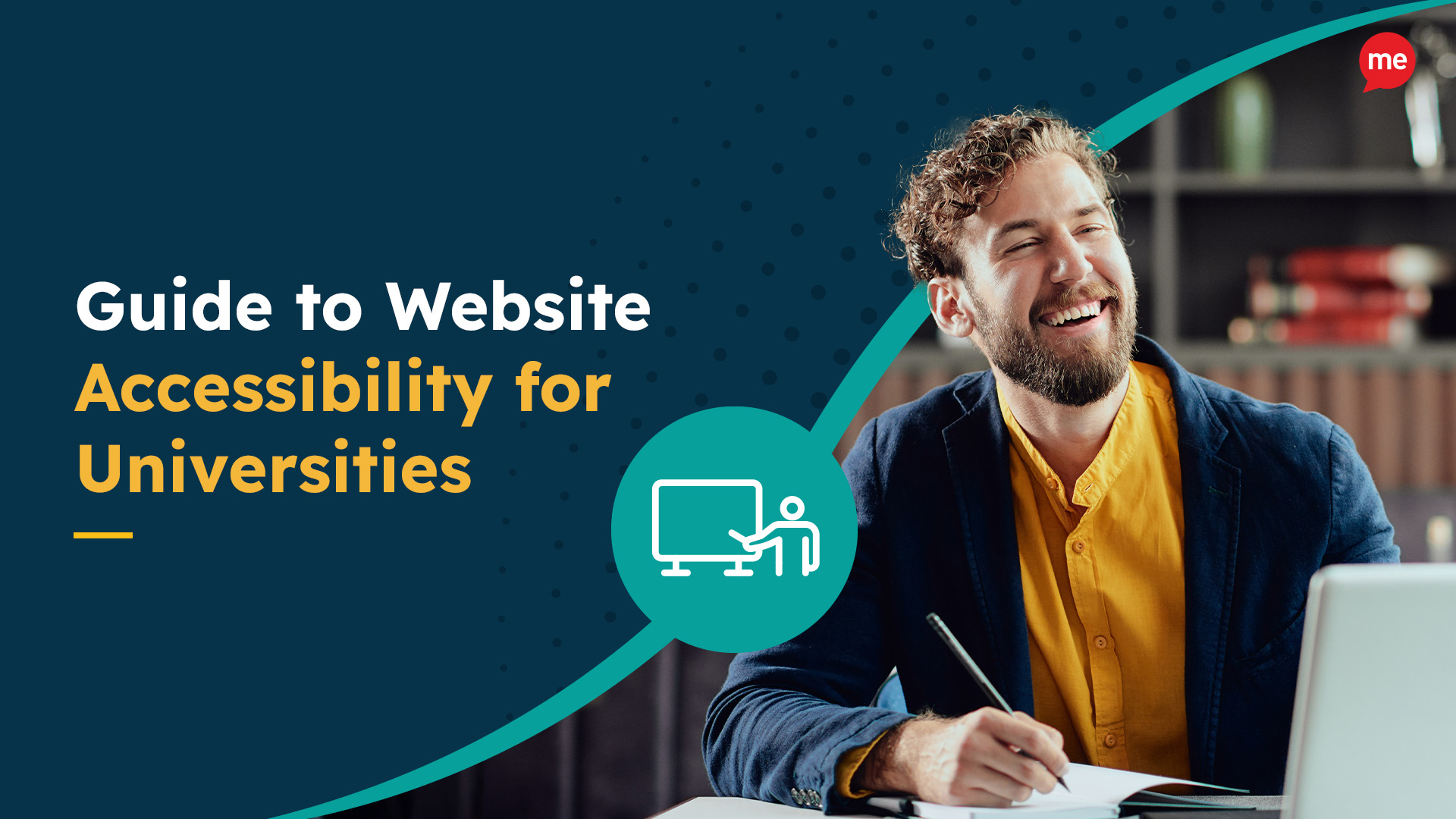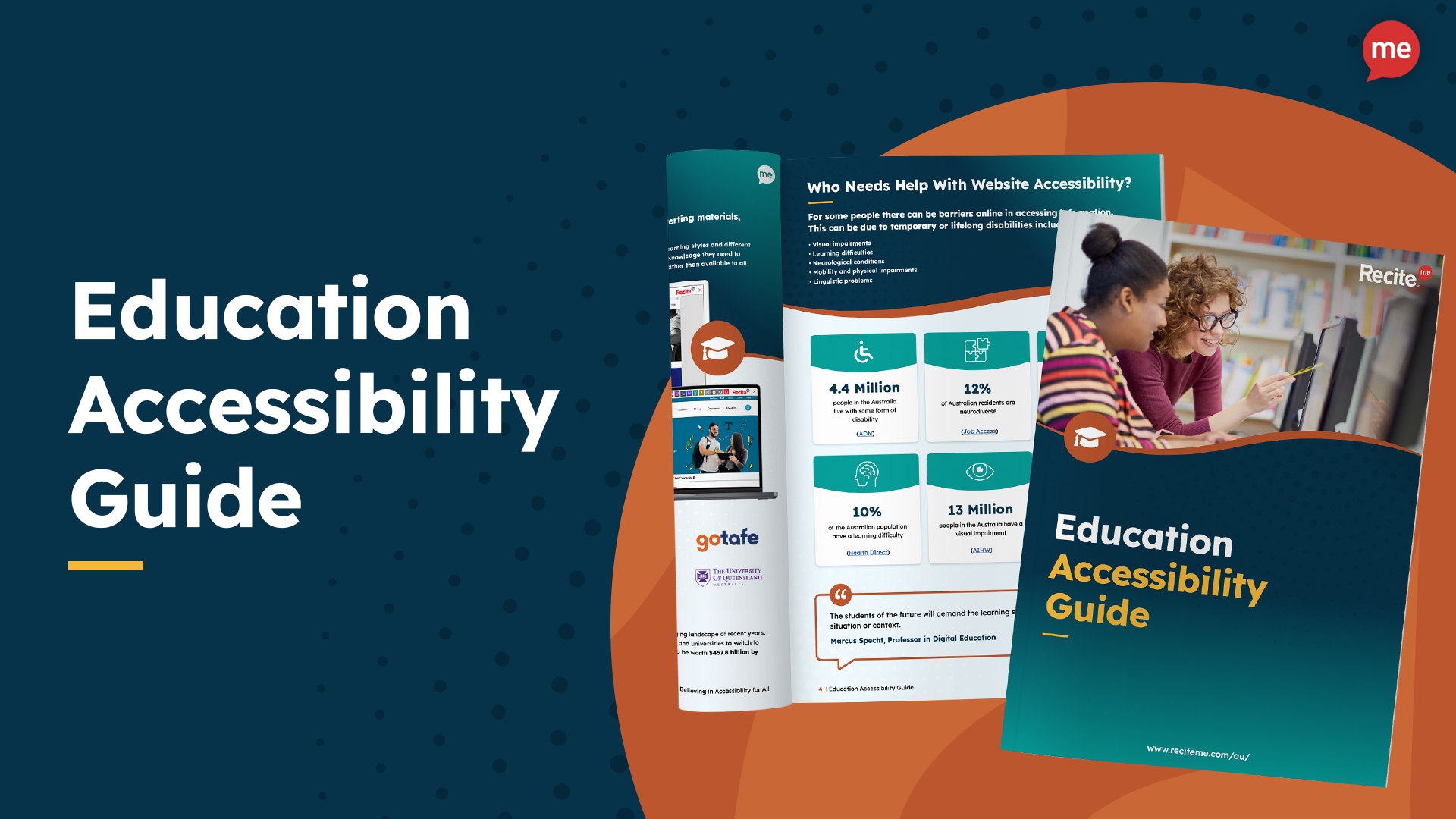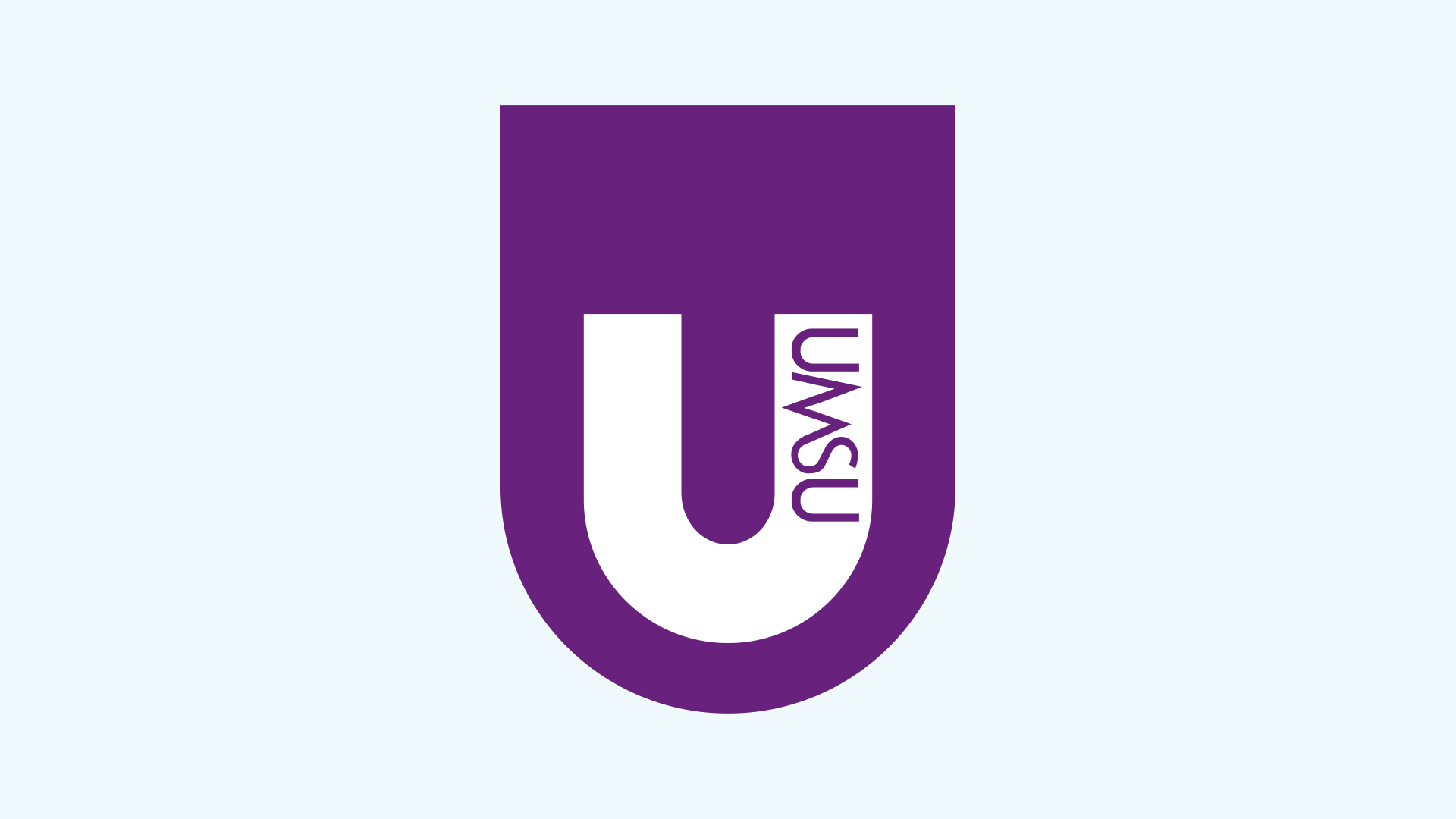Distance and remote learning have always been popular. However, in the ever-changing landscape of 2020 and 2021, many education institutions that offer regular attendance programmes have found themselves scrambling to switch to online and remote learning formats.
But it’s not as straightforward as simply converting materials, lectures, and workshop plans into a digital structure. It is important to consider that not everyone learns in the same way. Different learning styles and different abilities must be accounted for, so digital materials must be inclusive of everyone, not just available to everyone.
The Student Demographic
Some students are disadvantaged in an online environment because information on websites is not as easy to digest as it would be in a normal classroom or lecture hall environment. Examples include students who have visual deficits, physical disabilities, learning difficulties, attention disorders, autism, or literacy and language issues, including speaking/reading English as a second language. 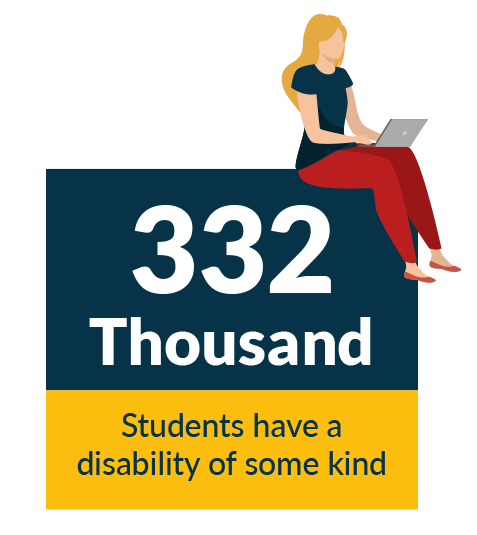
- In the academic year 2019-2020, government statistics reveal that 332,300 higher education students in the UK identified themselves as having a disability of some kind. This accounts for 17.3% of all home students.
While numbers for the last academic year are skewed by students returning to their home countries during the COVID-19 pandemic, statistics show that in the 2018-2019 academic year there were over 485,000 international students for whom English was not their primary language.
Internal Learning Portals
Introducing Moodle! Moodle is an open source online learning platform that enables education providers to create personalised learning environments for their students.
Used by many top colleges and universities, Moodle is the all-in-one integrated system that allows students to:
Access course materials and upload work.
See their grades, gain feedback, and contact tutors.
Keep a library archive of their coursework from the beginning to the end of their entire course.
Watch online videos and lessons.
Use messaging services and forums 24/7.

From an administrator’s perspective, Moodle helps keep student data safe, secure, and easily accessible in one centralised digital location. Tutors can easily share and manage learning materials, communicate with learners, and monitor progress/reports.
Incorporating Web Accessibility
Moodle is a fantastic learning resource and an effective learning platform. But, like any online service, it will only work if every student has equal access. That’s where website accessibility software like the Recite Me assistive toolbar comes in.
At Recite Me, we are firm believers that every stage of education should be inclusive. Our unique accessibility software compensates for numerous access barriers including:
Visual impairments
Deafblindness
Colour blindness
Dyslexia
Hyperlexia
Dyspraxia
Autism
ADHD
Speaking English as a second language
Epilepsy
Mobility and physical impairments
Comprising several accessibility features that can be used individually or combined, Moodle users at universities that have installed Recite Me software can make multiple adjustments for ultimate ease of use. Users can:
Personalise font size, type, and colour options to make each web page easier to read.
Utilise the mask screen tool, which isolates parts of the page to help with focus.
Use the ruler tool to make reading easier.
Download content as an audio file as an alternative to reading.
Convert page content into over 100 different on-screen languages.
Have the page read aloud in a choice of 35 different languages.
Customise PDF documents and have them read aloud or translated.
Recite Me, Birkbeck University of London, and Moodle
Birkbeck University of London has been using Recite Me on their public-facing website since 2017. In the autumn of 2020, the university improved its accessibility rating further by installing Recite Me on their internal Moodle platform.
The results in just a few short months were astounding:
The Recite Me toolbar was launched 81,279 times
11,596 unique individuals used the Recite Me toolbar on the Moodle website.
220,448 individual styling features were clicked
Interestingly for lecturers, our data shows that the most heavily used function was the player, which demonstrates that students do have a preference for having course content read aloud, just as they would in a classroom or lecture scenario.
Brett Lucas, Head of Digital Education at Birkbeck University of London commented, “Adding the Recite Me toolbar to Birkbeck’s Moodle site has been a great success for our students over the last year. It is playing an important part in our goal to make all our digital tools and learning materials easily accessible to all our students.”
Web Accessibility in the Higher Education Sector
Recite Me is proud to be working alongside many other leading education providers already, including the University of Sunderland, Cranfield University, York University, New College Durham, and Capital City College Group.
Data from the last 12 months show equally staggering results to those that Birbeck recorded:
The Recite Me toolbar was launched 1.7 million times
Over 9 million pages were viewed with the Recite Me toolbar enabled
Over 48 million individual styling features were clicked
Again, the most popular function was text to speech playback
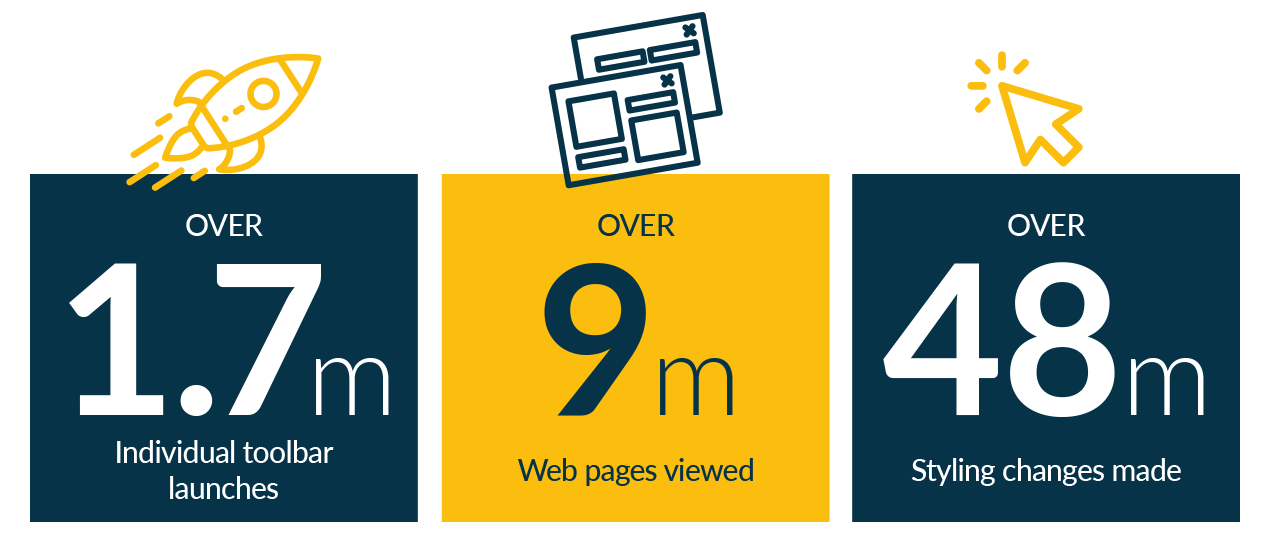
The Future of Remote and e-Learning
In 2020, 43% of academic institutions offering higher-level education courses invested in additional resources to aid remote instruction. Yet, according to a survey by EducationData.org, 76% of higher education institutions still believe that online learning platforms need to be more accessible to students.
Either way, whether due to continued social distancing regulations or simply because universities find it a simpler and more efficient way to teach, remote and distance learning courses look to be here to stay.
33% of post-secondary school administrators indicate they will continue to offer both remote and online course options even after their campuses have reopened and normal operations resume
The online learning industry is projected to pass $370 billion by 2026
A Message to Educators
To maximise on opportunities presented by the booming remote learning market, education providers must ensure that information is accessible to all, rather than just available to all. But it is almost impossible for any stand-alone online learning portal to accommodate the broad spectrum of barriers that face their students. That’s where assistive technology can help.
If you’d like more information on how your organisation can make a positive change towards inclusion by utilising Recite Me assistive technology, please contact our team or book a real-time demonstration of our toolbar. Additionally, you can start making your website more accessible with the Recite Me accessibility scan.
